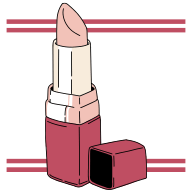What Beauty Industry Myth Have You Debunked as a Beauty Editor?
Unveiling the truth behind common misconceptions, we've gathered insights from beauty industry professionals, including an RN and Founder who challenges the notion that higher prices equate to superior quality. Alongside expert opinions, we present additional answers that further demystify widespread beauty myths. From the ineffectiveness of teeth-whitening lights to the minimal extra protection offered by higher SPF, join us as we explore the realities that debunk these beauty industry myths.
- Expensive Doesn't Guarantee Quality
- Professional Whitening vs. Home Kits
- Teeth-Whitening Lights Ineffective
- High Cost Not Equal to Quality
- Natural Ingredients May Irritate Skin
- Hypoallergenic Labels Can Mislead
- Higher SPF Offers Minimal Extra Protection
- Celebrity Endorsements Don't Ensure Effectiveness
Expensive Doesn't Guarantee Quality
That expensive always means better when it comes to skincare is a misconception. The truth I discovered is that when it comes to effective skincare, it's not about the price tag but rather the formulation of the product. The trick is to check out the ingredients and figure out what's best for your skin type and what you're worried about. What's key is focusing on what your skin really needs and picking products for what they're made of!

Professional Whitening vs. Home Kits
Over-the-counter teeth-whitening solutions are just as effective as getting your teeth whitened by a dentist. Home kits for teeth whitening come with their own set of risks and very rarely produce the same results as having your teeth professionally whitened by a dentist.

Teeth-Whitening Lights Ineffective
Remember that huge trend of teeth-whitening lights? Well, they don't really work. When I switched careers and joined SportingSmiles, we had a huge hand in the beauty industry with custom teeth-whitening trays. I learned that the lights that come with other whitening treatments don't work well because the light is not the proper strength to activate the whitening gel on the teeth. If you go to the dentist, they can offer a blue-light treatment. Those professional machines are strong enough, as they are industrial-grade, but the lights that come in the at-home whitening treatments are a fraction of the strength. That's why we produce custom whitening trays instead. It's a big myth in the beauty industry that doesn't work that well.

High Cost Not Equal to Quality
The beauty industry often promotes the idea that higher price points equate to better quality, but research shows this isn't necessarily the case. Ingredients are key, and some affordable products contain effective components just like their pricier counterparts. A higher cost might reflect branding, marketing, and packaging rather than the effectiveness of the product itself.
Consumers are encouraged to compare ingredient lists and product reviews rather than basing decisions solely on price. Make informed choices about your skincare by doing research before purchasing expensive items.
Natural Ingredients May Irritate Skin
Many people believe that using products with natural ingredients will be gentler and better for skin health, yet this is not always accurate. Natural ingredients, like essential oils or certain fruit extracts, can cause irritation or allergic reactions for some individuals. The term 'natural' is also not regulated, so it's often used as a marketing tool rather than a scientific standard.
It’s essential to patch-test any new product, regardless of its 'natural' label, to ensure your skin's tolerance. Always perform a patch test with new natural products to see how your skin reacts.
Hypoallergenic Labels Can Mislead
Products labeled as 'hypoallergenic' are often thought to be a safe bet for sensitive skin, however, they can still trigger adverse reactions. 'Hypoallergenic' suggests that the product is less likely to cause an allergic response, but it's not a guarantee as there is no standardized testing required for this claim. Sensitivities vary greatly from person to person, and what is hypoallergenic to one individual may not be for another.
Consumers should always review the full ingredient list for potential irritants that are personal to their sensitivities. Be vigilant and get to know which specific ingredients you should avoid, regardless of a hypoallergenic label.
Higher SPF Offers Minimal Extra Protection
There's a common misconception that a higher Sun Protection Factor (SPF) offers proportionately greater protection from harmful UV rays. In reality, after a certain point, the increase in UV protection is minimal compared to the increase in SPF number. For example, SPF 30 blocks about 97% of UVB rays, while SPF 50 blocks about 98%.
It's more important to apply sunscreen correctly and reapply it regularly than to choose a product with a very high SPF. Remember to apply sunscreen generously and reapply every two hours for effective skin protection.
Celebrity Endorsements Don't Ensure Effectiveness
Celebrity endorsements are a powerful tool used by cosmetics companies to boost sales, relying on the fame and influence of well-known personalities. However, these endorsements do not necessarily reflect the true quality or effectiveness of a product. A celebrity might have completely different skin needs or a professional team to help them achieve their look, which the average consumer does not have access to.
It's important to look beyond these endorsements and focus on credible reviews and scientifically backed data when choosing your beauty products. Don't let famous faces sway your beauty buying decisions—research and choose products based on their merits.

